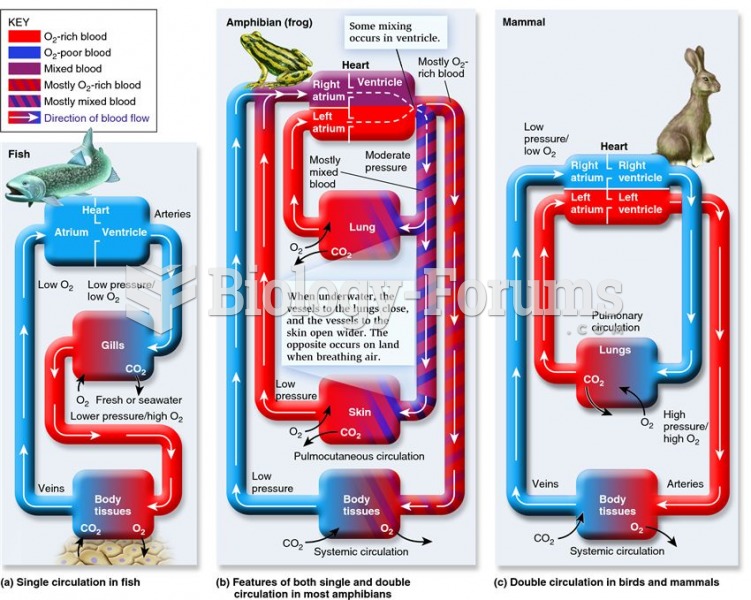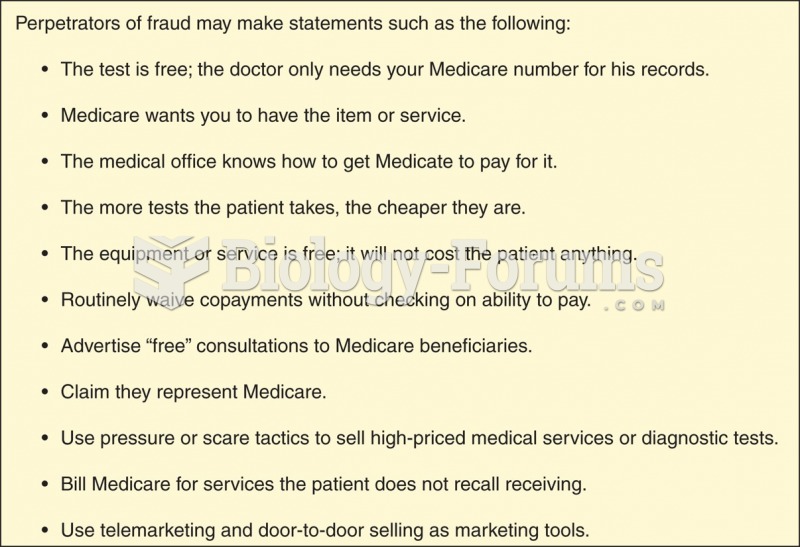|
|
|
More than one-third of adult Americans are obese. Diseases that kill the largest number of people annually, such as heart disease, cancer, diabetes, stroke, and hypertension, can be attributed to diet.
Aspirin is the most widely used drug in the world. It has even been recognized as such by the Guinness Book of World Records.
Illness; diuretics; laxative abuse; hot weather; exercise; sweating; caffeine; alcoholic beverages; starvation diets; inadequate carbohydrate consumption; and diets high in protein, salt, or fiber can cause people to become dehydrated.
A seasonal flu vaccine is the best way to reduce the chances you will get seasonal influenza and spread it to others.
In the United States, there is a birth every 8 seconds, according to the U.S. Census Bureau's Population Clock.







